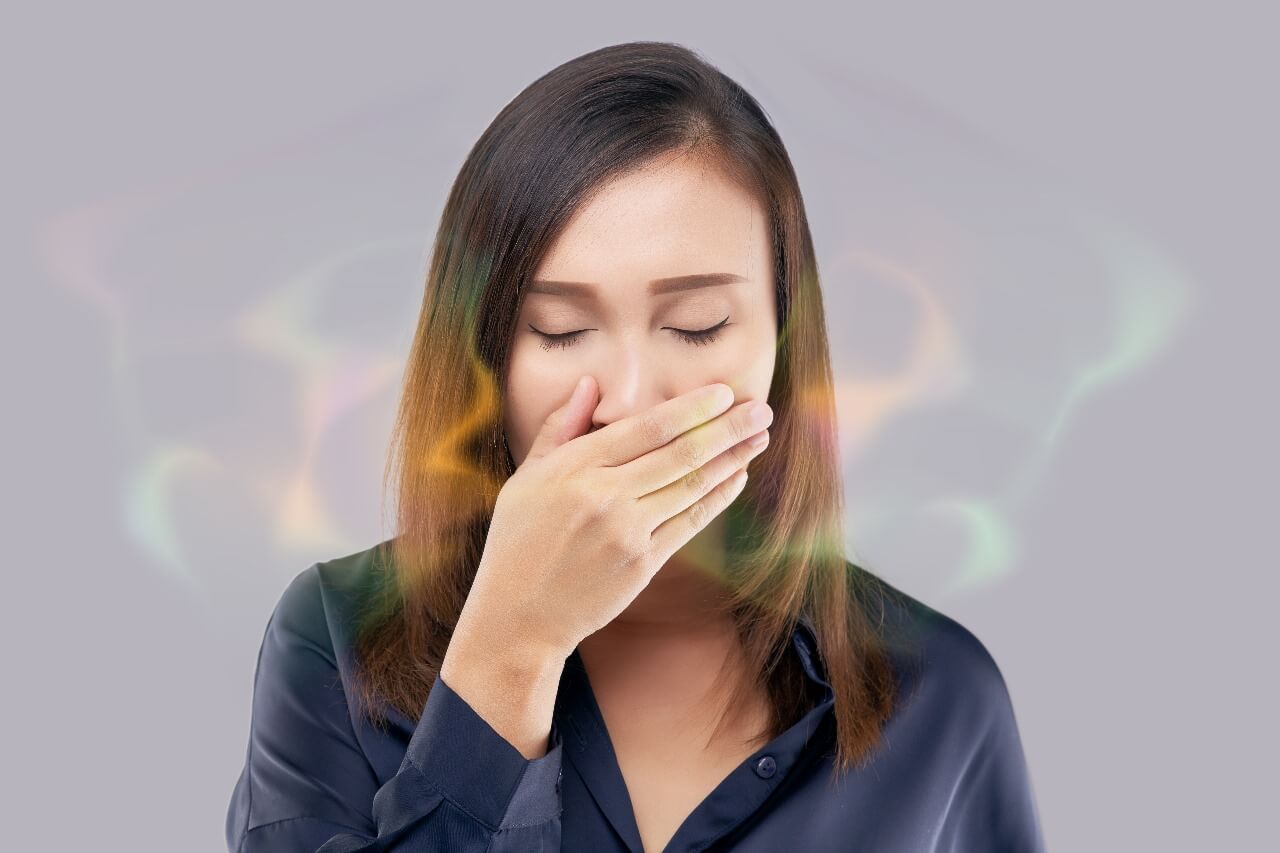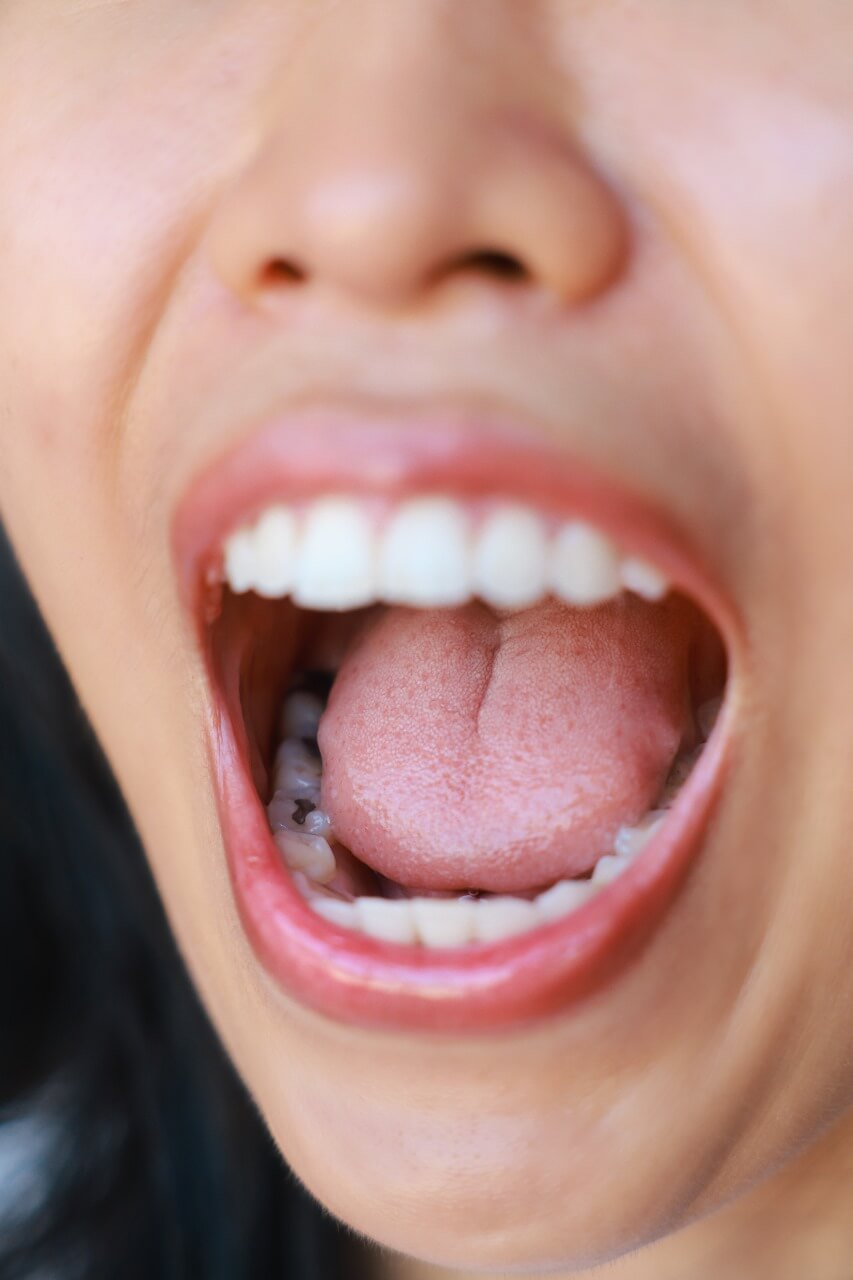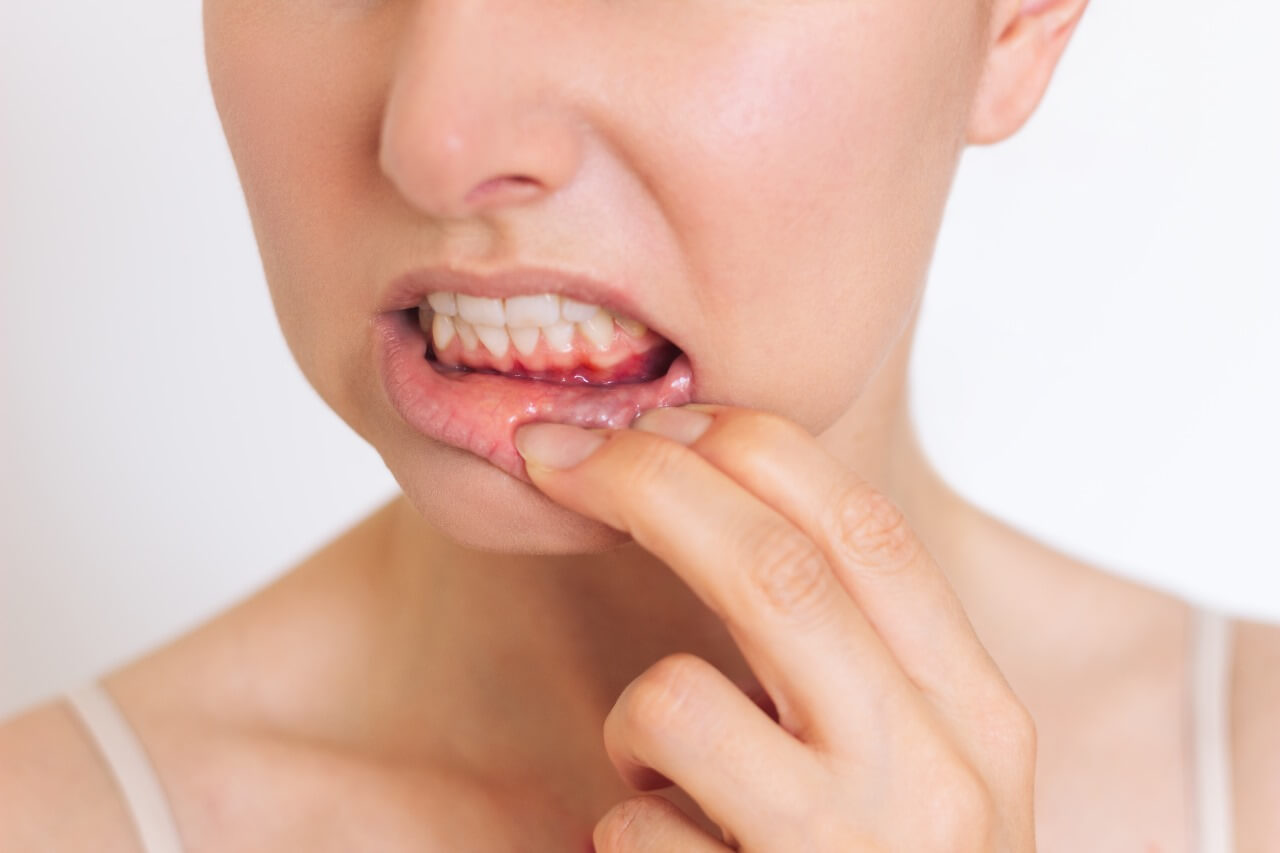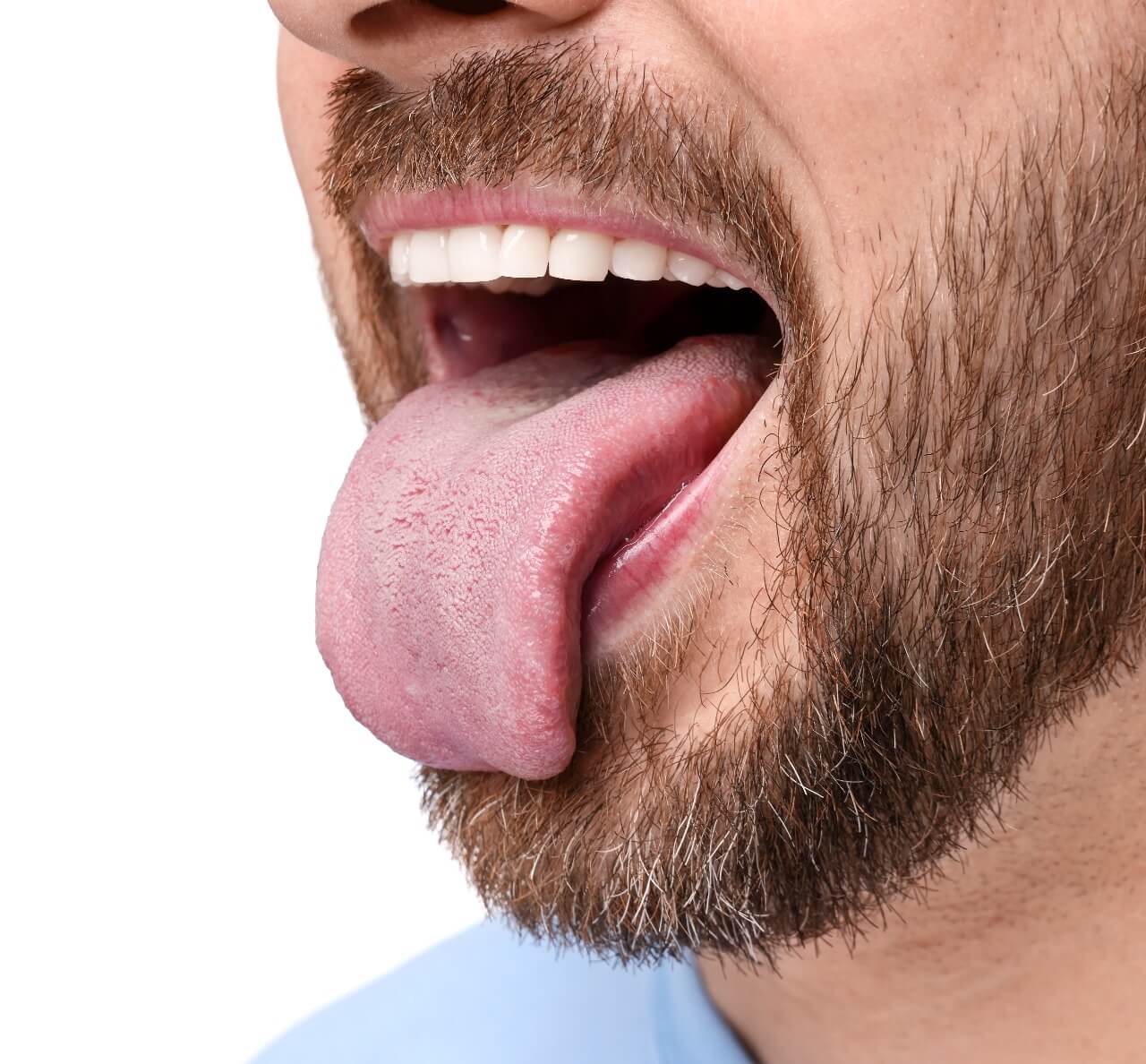Causes of bad breath
10 Surprising Causes of Bad Breath and Effective Solutions to Banish It
Bad breath, or halitosis, is a common yet often overlooked issue that can significantly impact our confidence and social interactions. While many people associate bad breath solely with poor oral hygiene, the reality is that a myriad of surprising factors can contribute to this unwelcome condition. From dietary choices and certain medications to underlying health issues, understanding the root causes of bad breath is crucial for tackling the problem effectively. In this enlightening blog post, we’ll explore ten unexpected culprits that may be lurking behind your less-than-fresh breath, along with practical and effective solutions to help you reclaim your freshness and confidence. Say goodbye to awkward moments and hello to a brighter smile as we delve into the surprising world of halitosis!

1. Introduction: Understanding Bad Breath
Bad breath, clinically known as halitosis, is a common yet often embarrassing condition that can affect anyone at any time. While it’s easy to dismiss bad breath as merely an aftereffect of a strong meal or lack of oral hygiene, the underlying causes can be surprisingly varied and complex. In fact, bad breath can stem from factors ranging from dietary choices and lifestyle habits to underlying health issues.
Understanding bad breath requires a closer look at the mouth’s microbiome, where bacteria thrive and break down food particles, producing sulfur compounds that lead to unpleasant odors. It can also be influenced by the health of your gums, the moisture levels in your mouth, and even the foods you consume. For instance, pungent foods like garlic and onions are notorious for their lingering effects, but did you know that certain medications and medical conditions can also play a significant role in causing halitosis?
In this blog post, we’ll delve into ten surprising causes of bad breath, shedding light on factors that may not be immediately obvious. From the seemingly innocuous habits we might overlook to the more serious health concerns that can manifest as bad breath, we’ll also provide effective solutions to help you banish those unwanted odors. By gaining a better understanding of the root causes of halitosis, you can take proactive steps toward freshening your breath and boosting your confidence in social situations. Let’s explore the world of bad breath and arm you with the knowledge to combat it effectively!
2. Common Myths About Bad Breath
When it comes to bad breath, misconceptions abound, often leading to misguided attempts at freshening up. One of the most prevalent myths is that bad breath is solely caused by the food we eat. While certain foods like garlic, onions, and spicy dishes can temporarily contribute to unpleasant odors, they are not the root cause of chronic bad breath. In fact, it’s often a sign of deeper issues, such as poor oral hygiene or underlying health conditions.
Another common myth is that mouthwash alone can eliminate bad breath. While mouthwash can provide a quick fix, it often masks the problem rather than addressing it. Many commercial mouthwashes contain alcohol, which can dry out the mouth and potentially exacerbate bad breath over time. Instead, it’s essential to focus on thorough oral care routines, including regular brushing, flossing, and hydration.
Some people believe that chewing gum is a foolproof solution to combat bad breath. While sugar-free gum can stimulate saliva production and temporarily help with freshness, it doesn’t replace the need for proper dental hygiene. Chewing gum should be considered a supplementary measure rather than a primary solution.
Lastly, many individuals assume that if they don’t have a dry mouth, they can’t have bad breath. However, even those with adequate saliva can experience halitosis due to factors such as bacteria buildup on the tongue or dental issues. Understanding these myths allows us to approach the problem of bad breath more effectively, leading to long-term solutions rather than quick fixes. By debunking these misconceptions, we can pave the way for healthier habits and a more confident smile.

3. Cause #1: Poor Oral Hygiene
Poor oral hygiene is one of the most common culprits behind bad breath, and surprisingly, it’s also one of the easiest to address. When proper dental care routines are neglected, food particles remain trapped between teeth and along the gum line, providing an ideal breeding ground for odor-causing bacteria. These bacteria thrive in the mouth, particularly in areas where plaque accumulates, leading to the production of sulfur compounds that produce an unpleasant smell.
To combat this issue, it’s essential to establish a consistent oral hygiene regimen. This includes brushing your teeth at least twice a day with fluoride toothpaste, ensuring you cover all surfaces of your teeth and tongue. Don’t forget to floss daily, as this helps remove food particles and plaque from between your teeth where a toothbrush can’t reach. Incorporating an antibacterial mouthwash can also help to kill bacteria and freshen your breath.
Regular visits to the dentist for check-ups and professional cleanings are vital as well. Your dentist can identify any underlying issues, such as cavities or gum disease, that may contribute to bad breath. Additionally, consider using a tongue scraper to remove the white coating that can accumulate on your tongue, as this is often a significant source of odor.
By committing to better oral hygiene, not only will you combat bad breath, but you’ll also enhance your overall dental health, leading to a brighter smile and greater confidence in your interactions. This simple yet effective change can make a world of difference, allowing you to breathe easy and engage with others without hesitation.

4. Cause #2: Dehydration and Dry Mouth
Dehydration and dry mouth are often overlooked culprits when it comes to bad breath, yet they play a significant role in the development of halitosis. When your body lacks adequate hydration, saliva production decreases. Saliva is essential for maintaining oral hygiene; it helps wash away food particles and bacteria that can lead to unpleasant odors. Without sufficient saliva, your mouth becomes a breeding ground for these odor-causing bacteria.
Imagine waking up in the morning with a parched throat and that unmistakable cotton-mouth feeling, which many of us experience after a long night’s sleep. This is a common scenario where dry mouth can lead to a less-than-pleasant breath. The problem can be exacerbated by certain factors such as mouth breathing, medications, or underlying health conditions like diabetes.
To combat dehydration and the resulting dry mouth, it’s essential to prioritize hydration throughout the day. Aim to drink at least eight glasses of water daily, and consider keeping a water bottle handy to sip on regularly. Incorporating hydrating foods into your diet, such as cucumbers, oranges, and watermelon, can also help maintain moisture levels in your mouth.
Additionally, using alcohol-free mouthwashes or oral sprays designed to combat dry mouth can provide immediate relief and a fresh burst of flavor. Chewing sugar-free gum or sucking on sugar-free candies stimulates saliva production, helping to keep your mouth moist and combat bad breath.
If dry mouth persists, consult your dentist or healthcare provider, as they may recommend specialized products or investigate any underlying conditions contributing to this issue. By addressing dehydration and dry mouth, you can effectively banish bad breath and enjoy a fresher, more confident smile.

5. Cause #3: Oral Infections and Gum Disease
When it comes to bad breath, many people overlook the role that oral infections and gum disease play, assuming it’s simply the result of poor oral hygiene or what they ate for lunch. However, infections in the mouth, whether they are caused by bacteria, viruses, or fungi, can significantly contribute to halitosis. Conditions like gingivitis and periodontitis, which are forms of gum disease, are particularly notorious culprits.
Gum disease begins with plaque buildup—an invisible layer of bacteria that forms on your teeth. If not removed through regular brushing and flossing, this plaque can harden into tartar, leading to inflammation and infection of the gums. As the infection progresses, it can create pockets in the gums, trapping bacteria and food particles, which emit foul odors.
The signs of gum disease often go unnoticed at first, but symptoms such as swollen gums, bleeding while brushing, and persistent bad breath can indicate that something is amiss. If you find that your breath continues to be unpleasant despite good oral hygiene practices, it may be time to consult a dental professional.
To banish bad breath caused by oral infections and gum disease for good, prioritize your dental health. This means brushing at least twice a day, flossing daily, and scheduling regular dental check-ups and cleanings. If an infection is present, your dentist may recommend treatments such as scaling and root planing to remove tartar and bacteria from below the gum line. In more severe cases, antibiotics may be prescribed to tackle the underlying infection.
Additionally, maintaining a healthy diet and staying hydrated can help combat the dry mouth that often exacerbates bad breath, providing your saliva—the mouth’s natural cleanser—a chance to neutralize odor-causing bacteria. By addressing oral infections and gum disease promptly and effectively, you can enjoy fresher breath and a healthier smile.

6. Cause #4: Diet and Food Choices
Diet and food choices play a significant role in the battle against bad breath, often more than one might realize. What you eat not only affects your overall health but also influences the freshness of your breath. Strong-smelling foods, such as garlic, onions, and certain spices, can leave a lingering odor that persists long after you’ve finished eating. The compounds in these foods are absorbed into your bloodstream and released through your lungs, making them hard to escape—no amount of mouthwash will mask their powerful aroma.
Additionally, acidic foods like citrus fruits and certain dairy products can contribute to an imbalance in your mouth’s pH levels, promoting the growth of odor-causing bacteria. High-protein diets, while popular for weight loss, can also lead to bad breath as the body breaks down proteins, producing ammonia and other sulfurous compounds that emit an unpleasant smell.
So, what can you do to keep your breath fresh? Start by being mindful of your dietary choices. Incorporating crunchy fruits and vegetables, such as apples, carrots, and celery, can help combat bad breath. These foods not only stimulate saliva production, which naturally cleanses the mouth, but they also have a natural antibacterial effect. Additionally, drinking plenty of water throughout the day helps to rinse away food particles and bacteria, keeping your mouth hydrated and odor-free.
For those who enjoy strong-flavored foods, consider pairing them with fresh herbs like parsley or mint, which are known for their breath-freshening properties. These herbs contain chlorophyll, a natural deodorizer that can help neutralize odors.
Ultimately, being aware of how your diet impacts your breath is essential. By making conscious food choices and incorporating breath-friendly snacks into your routine, you can significantly improve your oral freshness and feel more confident in your interactions with others.

7. Cause #5: Smoking and Tobacco Use
Smoking and tobacco use are not only detrimental to your overall health but also significant contributors to bad breath. The harsh chemicals in cigarettes and other tobacco products can create an unpleasant odor that lingers long after the smoke has cleared. When you smoke, you not only inhale these toxins but also exhale them, leaving behind a distinct and often off-putting smell that can permeate your clothes, hair, and skin.
Moreover, tobacco use can lead to dry mouth, a condition that exacerbates bad breath. Saliva is crucial for washing away food particles and neutralizing odors, and smoking decreases saliva production. This creates an ideal environment for bacteria to thrive in your mouth, further intensifying the foul smell.
The impact of smoking extends beyond breath; it can also lead to gum disease, tooth decay, and an overall decline in oral health, all of which contribute to persistent halitosis. But don’t despair—there are effective solutions to combat this issue.
Quitting smoking is the most significant step you can take to improve your breath and overall health. Numerous resources are available to help you kick the habit, from counseling to nicotine replacement therapies. In the meantime, maintaining a rigorous oral hygiene routine is essential. Brush your teeth at least twice a day, and don’t forget to clean your tongue, where bacteria often accumulate.
Incorporating mouthwash into your daily regimen can also help neutralize odors, but look for alcohol-free options to avoid further drying out your mouth. Staying hydrated is key—drink plenty of water throughout the day to keep your mouth moist and support saliva production. Chewing sugar-free gum or sucking on sugar-free mints can also stimulate saliva flow, making it easier to combat bad breath while you work towards quitting tobacco for good. By addressing smoking and tobacco use, you’ll be well on your way to freshening up your breath and reclaiming your confidence.

8. Cause #6: Medical Conditions (e.g., Sinus Infections, Diabetes)
When you think about bad breath, the common culprits often come to mind: garlic-laden meals, morning coffee, or simply forgetting to brush your teeth. However, one of the more surprising causes can stem from underlying medical conditions, which may disrupt the delicate balance of your oral health. Conditions such as sinus infections and diabetes can significantly contribute to halitosis, leaving you with an unintentional social faux pas.
Sinus infections, for instance, can lead to post-nasal drip, where mucus accumulates in the throat and mouth. This mucus can become a breeding ground for bacteria, resulting in a foul odor that lingers long after the infection has cleared. If you find that your breath worsens during allergy season or after a cold, it may be time to consult with a healthcare professional about potential sinus issues.
Similarly, diabetes can play a crucial role in bad breath. When blood sugar levels are poorly controlled, the body may enter a state of ketosis, where it burns fat for energy instead of glucose. This process releases acetone, a compound that can give your breath a distinctly fruity smell. Beyond the odor, it’s essential to monitor your diabetes carefully to prevent further health complications.
If you suspect that a medical condition could be the root of your bad breath, addressing the underlying issue is vital. Regular check-ups with your doctor, proper management of chronic conditions, and open communication about your symptoms can help you find effective solutions. In addition, consider incorporating good oral hygiene practices, such as brushing your teeth and tongue, using mouthwash designed to fight bacteria, and staying well-hydrated to keep your mouth moist. By tackling both the symptoms and the underlying causes, you can banish bad breath for good and enjoy the confidence that comes with fresh breath.

9. Cause #7: Medical Conditions (e.g., diabetes, GERD)
When you think about bad breath, the usual suspects might come to mind: garlic, onions, or even that last cup of coffee. However, underlying medical conditions can also play a significant role in the freshness (or lack thereof) of your breath. Conditions such as diabetes and gastroesophageal reflux disease (GERD) are two surprising culprits that can leave you grappling with persistent halitosis.
In the case of diabetes, the body’s inability to properly regulate blood sugar levels can lead to a condition known as diabetic ketoacidosis. This occurs when the body begins to break down fat for energy, producing a distinct, sweet, and fruity odor on the breath that is often a telltale sign of uncontrolled diabetes. If you find yourself dealing with breath that smells reminiscent of overripe fruit, it’s essential to consult with your healthcare provider to evaluate your blood sugar levels and overall management of the condition.
GERD, on the other hand, is characterized by the backward flow of stomach acids into the esophagus. This reflux can bring with it a host of unpleasant symptoms, including a sour taste in the mouth and, yes, bad breath. The acidic contents of the stomach can cause irritation and inflammation, leading to an odor that can be quite difficult to mask. If you suffer from frequent heartburn or regurgitation, addressing these symptoms through dietary changes or medications may help alleviate both your discomfort and your breath issues.
To effectively combat bad breath stemming from these medical conditions, it’s crucial to prioritize your overall health. For diabetes, maintaining balanced blood sugar levels through a healthy diet, regular exercise, and medication adherence is key. For those with GERD, eating smaller, more frequent meals, avoiding trigger foods (like spicy or fatty dishes), and elevating your head while sleeping can be beneficial. Additionally, ensuring proper oral hygiene—like brushing your teeth twice a day, flossing, and using mouthwash—can help mitigate the effects of bad breath, regardless of the underlying cause.
Recognizing that bad breath can be a symptom of a larger issue is an important step in addressing it. If you suspect that a medical condition is contributing to your halitosis, don’t hesitate to reach out to a healthcare professional for guidance and support. Taking these proactive measures can help you regain your confidence and keep your breath fresh.

10. Cause #8: Sinus Infections and Allergies
Sinus infections and allergies are often overlooked culprits when it comes to bad breath, yet their impact can be significant. When the sinuses become inflamed due to infection or allergic reactions, they can lead to a buildup of mucus in the nasal passages and throat. This excess mucus can create a breeding ground for bacteria, resulting in an unpleasant odor that seeps into your breath.
People suffering from chronic sinus issues may find that their breath takes on a distinct, foul smell, often described as musty or sour. This is compounded by the fact that clogged sinuses can lead to mouth breathing, which dries out the mouth and diminishes saliva production. Saliva plays a crucial role in cleansing the mouth and neutralizing odor-causing bacteria, so a reduction in saliva can exacerbate the problem.
To combat bad breath stemming from sinus infections and allergies, it’s essential to address the root causes. Here are some effective solutions:
1. **Stay Hydrated**: Drink plenty of water to help thin mucus and keep your mouth moist. Herbal teas can also be beneficial for hydration and soothing irritation.
2. **Nasal Irrigation**: Using a saline nasal rinse or a neti pot can help clear out mucus and allergens from your sinuses, reducing inflammation and the potential for bacterial growth.
3. **Consult a Healthcare Professional**: If you suspect that allergies or a sinus infection are causing your bad breath, seek advice from a healthcare provider. They may recommend antihistamines or nasal corticosteroids to alleviate symptoms.
4. **Good Oral Hygiene**: Continue to brush and floss regularly, focusing on the back of your tongue where bacteria can accumulate. Using an antibacterial mouthwash can also help neutralize odors.
5. **Steam Inhalation**: Inhaling steam from hot water can help open up your nasal passages, making it easier to breathe and flush out mucus. Adding essential oils like eucalyptus can enhance the effect.
By acknowledging the connection between sinus health and breath freshness, you can take proactive steps to ensure that sinus infections and allergies don’t dampen your confidence with unpleasant breath. With consistent care and attention, you can keep your breath fresh and your smile bright.

11. Cause #9: Stress and Its Effect on Breath
When we think about the causes of bad breath, stress is usually not the first culprit that springs to mind. However, the connection between stress and oral health is more significant than many realize. In times of high anxiety or stress, our bodies undergo a series of physiological changes that can directly impact our breath.
During stressful periods, the body produces higher levels of cortisol, the stress hormone, which can alter the balance of bacteria in the mouth. This imbalance can lead to an overgrowth of odor-causing bacteria, resulting in halitosis. Furthermore, stress often leads to dry mouth, a common side effect of anxiety. Saliva plays a crucial role in washing away food particles and neutralizing acids produced by bacteria. When your mouth is dry, it becomes a haven for bacteria, exacerbating the issue of bad breath.
Additionally, stress can affect our daily routines, leading to neglect in oral hygiene practices. When feeling overwhelmed, people might skip brushing or flossing, allowing plaque and bacteria to thrive unchecked. Stress eating can also contribute to bad breath; indulging in sugary snacks or acidic foods can worsen the problem, creating a vicious cycle that’s hard to break.
To combat bad breath related to stress, it’s essential to prioritize self-care and stress management techniques. Regular exercise, mindfulness practices, and adequate sleep can significantly reduce stress levels. Staying hydrated is crucial, too; drinking plenty of water helps stimulate saliva production and flush out bacteria. Incorporate a consistent oral hygiene routine, including brushing twice a day and using mouthwash, to keep your breath fresh. By addressing the root causes of stress and its effects on your oral health, you can effectively banish bad breath for good and enjoy a renewed sense of confidence.

12. Cause #10: Tongue Bacteria and Coating
When it comes to bad breath, many people overlook an often-neglected area: the tongue. The surface of your tongue is a veritable landscape, complete with nooks and crannies that can harbor bacteria, food particles, and dead cells. This biofilm creates a perfect breeding ground for odor-causing bacteria, leading to that pesky halitosis that can linger even after brushing your teeth.
The tongue can develop a coating that varies in color from white to yellowish, indicating a buildup of bacteria, food debris, and dead cells. This coating not only contributes to bad breath but can also affect your sense of taste, making it a double whammy for your oral health. Often, this coating is exacerbated by dry mouth, which can occur due to dehydration, certain medications, or mouth breathing during sleep.
So, how can you banish tongue bacteria and maintain fresh breath? Start by incorporating tongue cleaning into your daily oral hygiene routine. You can use a specialized tongue scraper or simply brush your tongue gently with your toothbrush. This practice helps remove the buildup and reduce the bacteria responsible for unwanted odors.
Additionally, staying hydrated is crucial. Drinking plenty of water throughout the day helps wash away food particles and bacteria, keeping your mouth moist and your breath fresher. Don’t forget to maintain regular dental check-ups; your dentist can help identify any underlying issues and provide professional cleanings to keep your mouth healthy.
By addressing the often-overlooked issue of tongue bacteria and coating, you can significantly improve your breath and boost your confidence in social situations. Embrace these simple yet effective habits, and say goodbye to bad breath for good!
13. Effective Strategies to Combat Bad Breath
Bad breath, or halitosis, can be a source of embarrassment and discomfort. However, with the right strategies in place, you can effectively combat this issue and ensure fresh, confident breaths. Here are some effective strategies to banish bad breath for good:
1. **Maintain Good Oral Hygiene**: The foundation of fresh breath starts with proper oral care. Brush your teeth at least twice a day and don’t forget to floss daily. This helps remove food particles and plaque that can contribute to unpleasant odors. Additionally, don’t overlook your tongue—bacteria can accumulate on its surface, so using a tongue scraper or brushing your tongue can make a significant difference.
2. **Stay Hydrated**: A dry mouth is a breeding ground for odor-causing bacteria. Drinking plenty of water throughout the day helps keep your mouth moist and washes away food particles. Consider carrying a water bottle with you to ensure you stay hydrated, especially in dry environments.
3. **Chew Sugar-Free Gum**: Chewing gum stimulates saliva production, which is your mouth’s natural defense against bad breath. Opt for sugar-free varieties, as they will not only help freshen your breath but also prevent tooth decay.
4. **Incorporate Breath-Freshening Foods**: Certain foods can help combat bad breath. Crunchy fruits and vegetables like apples, carrots, and celery can help scrub the teeth and stimulate saliva production. Herbs such as parsley, mint, and cilantro are also excellent natural breath fresheners due to their antibacterial properties.
5. **Avoid Certain Foods**: While some foods can freshen your breath, others, like garlic and onions, can contribute to foul odors. If you have an important event or meeting, consider avoiding these foods beforehand.
6. **Regular Dental Check-Ups**: Professional cleanings and check-ups are crucial for maintaining good oral health. Dentists can identify any underlying issues, such as gum disease or tooth decay, that might be contributing to your bad breath.
7. **Quit Smoking**: If you smoke, quitting can dramatically improve your breath. Tobacco products not only contribute to bad breath but also dry out your mouth, making it harder for your body to combat odors naturally.
8. **Use Mouthwash Wisely**: While mouthwash can provide temporary relief from bad breath, it’s important to choose a product that kills bacteria, not just masks the smell. Look for mouthwashes containing antimicrobial ingredients like chlorhexidine or cetylpyridinium chloride.
9. **Address Underlying Health Issues**: Sometimes, bad breath can be a symptom of underlying health problems. Conditions such as sinus infections, acid reflux, or diabetes can contribute to persistent halitosis. If you’ve tried multiple strategies without success, consulting a healthcare provider may be necessary to address any potential health concerns.
10. **Mind Your Medications**: Some medications can cause dry mouth as a side effect, leading to bad breath. If you suspect your medication is causing issues, speak with your healthcare provider about possible alternatives or solutions.
By implementing these effective strategies, you can take control of your oral health and confidently banish bad breath for good. Fresh breath not only enhances your personal comfort but also leaves a positive impression on those around you.
14. Importance of Regular Dental Check-ups
Regular dental check-ups are a cornerstone of maintaining not just oral health but also fresh breath. Many might underestimate the significance of these routine visits, thinking that if they brush and floss diligently, they can forgo the dentist. However, bad breath can often be a symptom of underlying issues that might not be immediately apparent to the untrained eye.
During a dental check-up, a professional can identify problems such as gum disease, tooth decay, or even oral infections—conditions that can all contribute to halitosis. Gum disease, in particular, is notorious for causing persistent bad breath, as bacteria thrive in the pockets created by inflamed gums. A dentist’s trained eye can spot these issues early on, allowing for timely treatment before they escalate into more significant problems.
Moreover, dental check-ups often include a thorough cleaning that removes plaque and tartar buildup, which are breeding grounds for bacteria. Even the most diligent brushers can miss areas of their mouth, and regular cleanings ensure that these neglected spots don’t become a source of odor.
Beyond the physical aspects, these appointments provide an opportunity to discuss any concerns about your breath. Your dentist can offer personalized advice on oral hygiene practices and recommend products that can help combat bad breath, such as specialized mouthwashes or tongue scrapers.
In summary, prioritizing regular dental check-ups not only helps you maintain a healthy mouth but also plays a crucial role in keeping bad breath at bay. By establishing a relationship with your dentist, you’re taking proactive steps to ensure that your smile—and your breath—stay fresh and inviting.

15. When to Seek Professional Help for Persistent Bad Breath
Bad breath, or halitosis, can be an embarrassing and uncomfortable condition, but in most cases, it’s manageable with good oral hygiene and lifestyle changes. However, if you’ve taken steps to improve your breath—brushing and flossing regularly, using mouthwash, staying hydrated, and avoiding strong-smelling foods—but still find yourself facing persistent bad breath, it may be time to seek professional help.
Persistent bad breath can be a sign of underlying health issues that may require the attention of a healthcare professional. If your breath continues to be a concern for more than a few weeks despite your best efforts, consider consulting your dentist or doctor. Dental professionals can identify issues such as gum disease, tooth decay, or infections that may be contributing to your halitosis. They can also conduct thorough cleanings and provide personalized advice tailored to your specific situation.
In some cases, chronic bad breath can be linked to systemic conditions, such as respiratory infections, diabetes, gastrointestinal disorders, or even kidney and liver problems. If you experience additional symptoms—such as a persistent dry mouth, changes in taste, or unexplained weight loss—it’s crucial to discuss these with a healthcare provider, who may recommend further tests or referrals to specialists.
Don’t let bad breath inhibit your confidence. Seeking professional help not only aids in pinpointing the root cause but also sets you on the right path toward effective treatment. Remember, addressing the issue sooner rather than later can lead to significant improvements in your oral health and overall well-being.
